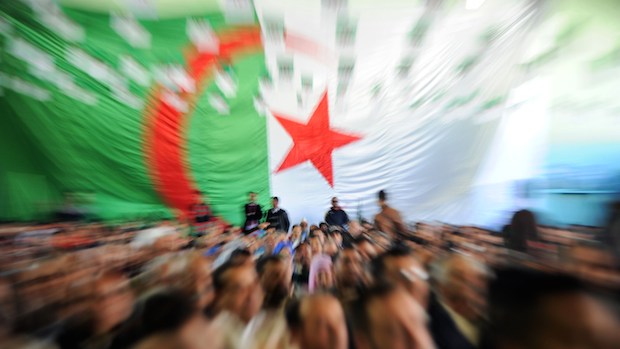An analysis of the political reality in Algeria shows a scene divided between two opposing forces. On the one hand, there is a regime that is looking for ways to guarantee its legitimacy in order to stay in power. On the other hand, we have an opposition that has been able to rise above political, partisan and ideological divisions in order to form a strong and united front with homogenous goals. Algeria’s opposition is now working for a seamless and peaceful transition.
Ostensibly, the Algerian political regime remains powerful because it controls the administration of the state, and state revenues in particular. It also enjoys increased external support as a result of concessions made to foreign powers in return for buying their silence. This has allowed President Abdelaziz Bouteflika to secure a controversial fourth term in office, despite widespread disapproval from different sectors of Algerian society as well as the international community.
However, the superficial strength of the regime hides the reality of the situation, namely that Le Pouvoir has been eroded and weakened, becoming increasingly toothless. The fact is that the Algerian political regime has collapsed morally, ethically and politically, and it has lost popular support. The regime was rocked by successive corruption scandals involving members of the president’s inner circle. It suffered another setback when Bouteflika’s health deteriorated, which prevented him from running the affairs of state. The announcement that the president would seek the presidency for a record fourth term in office was met with widespread protests, coinciding with a number of presidential candidates announcing that they would be boycotting the polls on the understanding that the April 17 elections were all but decided in advance.
The regime suffered one setback after another. During the election, the president’s campaign was unable to gain any popular support and was sometimes even forced to cancel events and rallies due to expected protests and unrest, confirming the government’s loss of political legitimacy. Despite the regime’s rhetoric of fear and intimidation, large parts of Algerian society responded positively to opposition calls to boycott the April 17 election. Every vote against Bouteflika was an act of revenge, forcing the regime to resort to inflating voter turnout in order to secure a fourth term in office for the president.
The April 17 elections renewed a regime that already lacked legitimacy and lived in isolation from both the public and its political opponents. Looking at this in connection with Algeria’s rampant socio-economic problems, one could say the regime is currently living in a state of decline and confusion.
The opposition has suffered decades of abuse at the hands of the current regime, which aimed to break and divide it, destroying its credibility and popularity. The regime only ever allowed the opposition to play a superficial role in events. But after decades of this, the opposition took note of its state of disarray and began to move beyond its ideological divisions. Algeria’s opposition consolidated its demands and established transparent rules for a fair presidential election. It built a united front comprised of different political currents and ideologies and, after Bouteflika’s controversial nomination, took the decision to boycott the elections.
Following the successful boycott of the elections which robbed Bouteflika of his legitimacy, the opposition has stepped up its efforts by organizing the Conference for the Democratic Transition. The opposition resisted the regime’s attempts to contain or crush it, rejecting cabinet positions and constitutional discussions that ultimately would have only enshrined the regime’s hegemony. By out-manoeuvring the regime in this regard, Algeria’s opposition has been able to confirm its political maturity.
The Algerian political scene is currently running on two separate tracks. The regime is confused and does not know its short-, medium- or long-term fate, particularly as its physical strength and self-image is on the wane. On the other hand, the opposition is only growing stronger, having put its affairs in order and resolved its moral, ideological and political quandaries. However, the reality is that these two tracks cannot and will not intersect. The regime is not prepared to enter into serious discussions about real change, but rather is seeking to re-secure its hegemony—this time, cloaked in pluralism. The opposition is adamant about the need for radical change to realize its dream of democratic transition and the establishment of the rule of law and justice. In this fight, the regime is its only opponent.
The counterpoint to this article can be read here.
